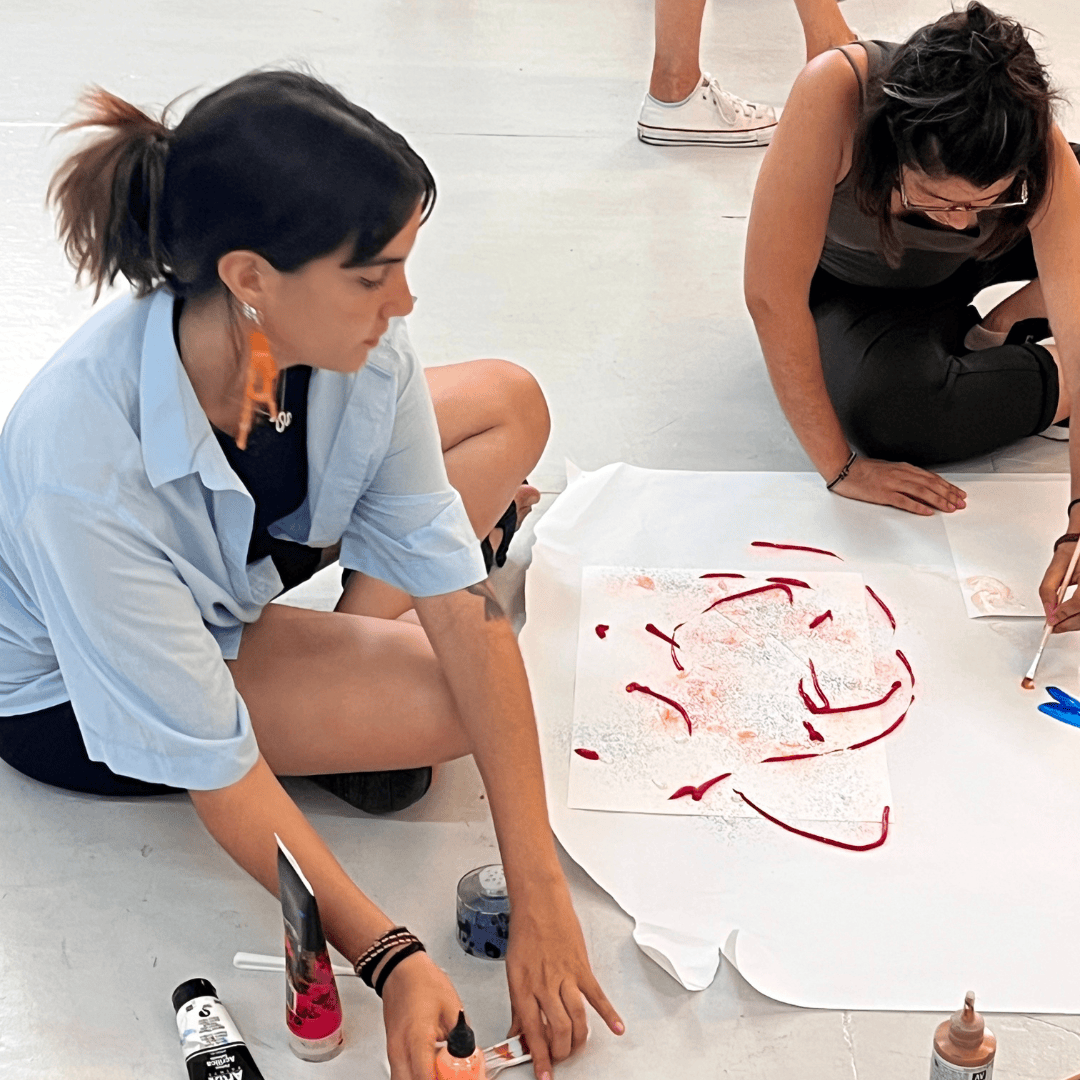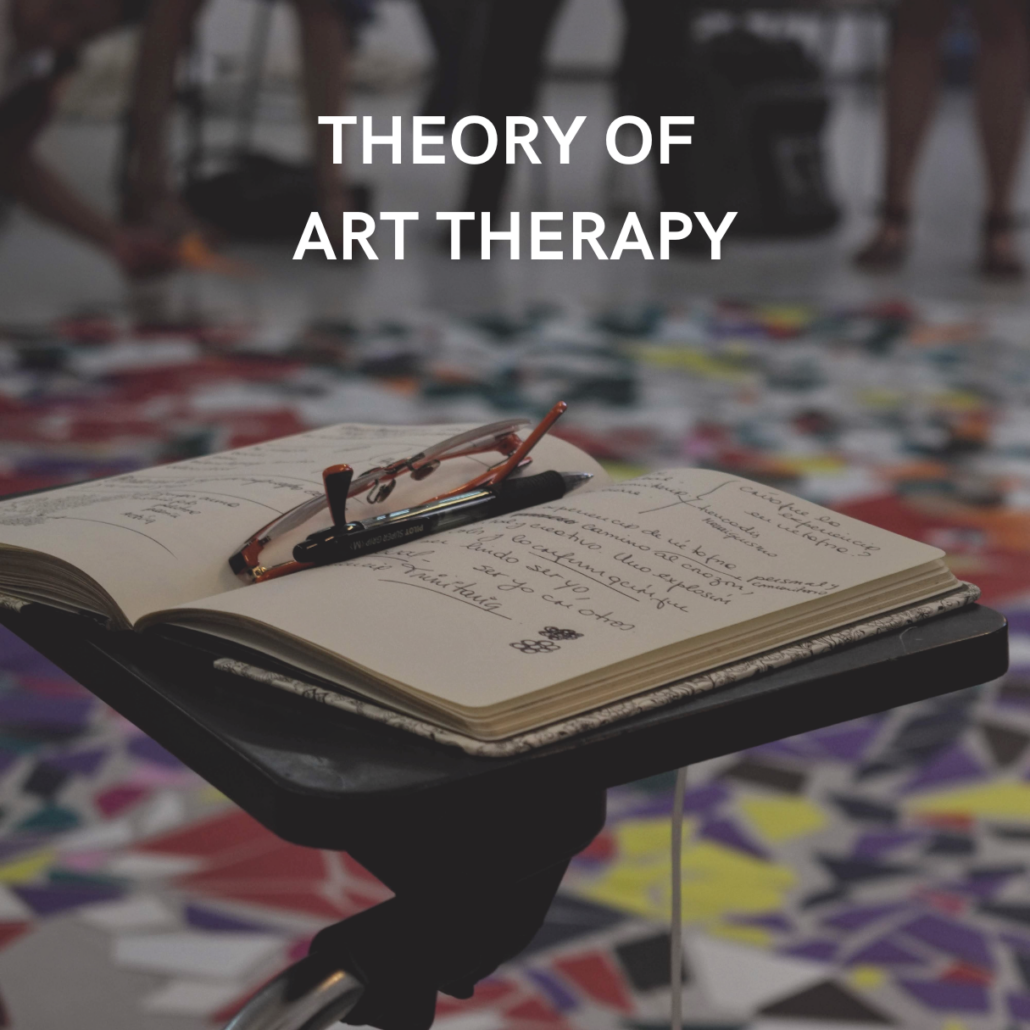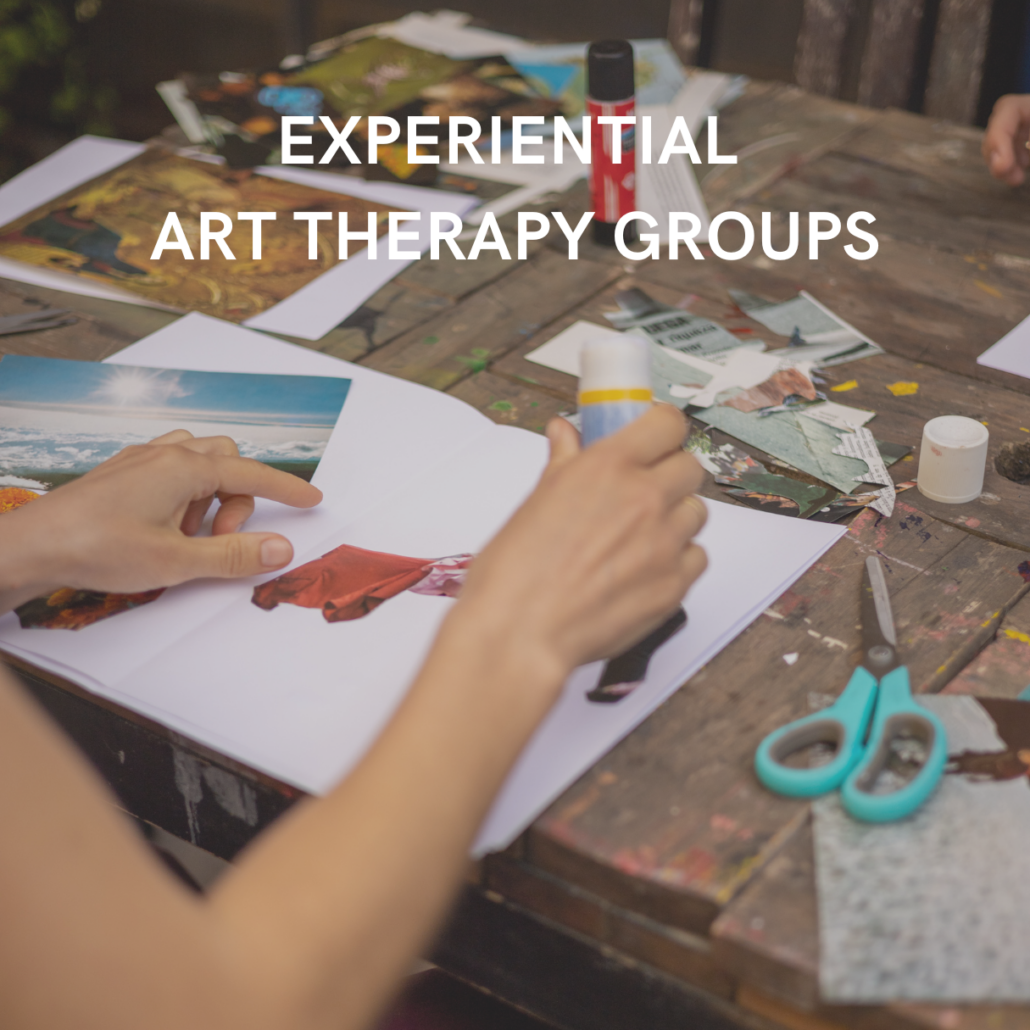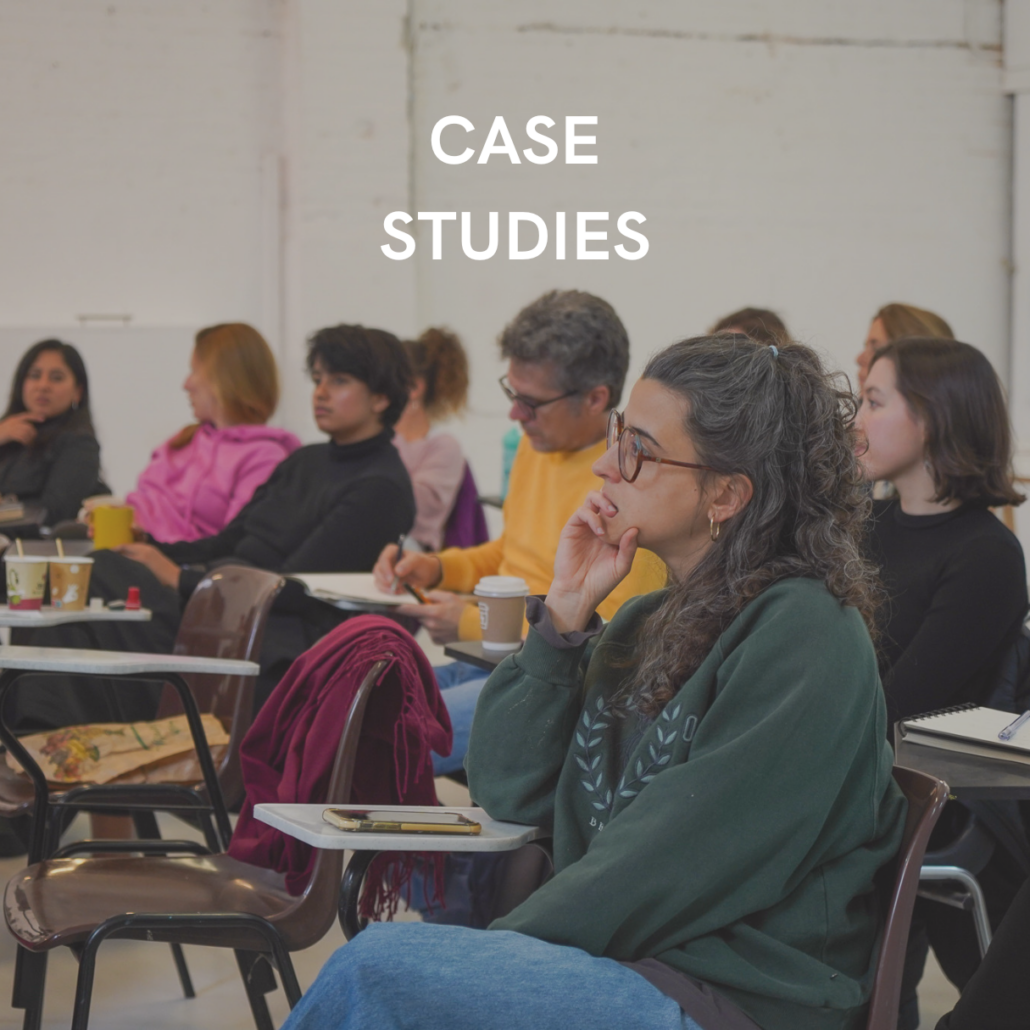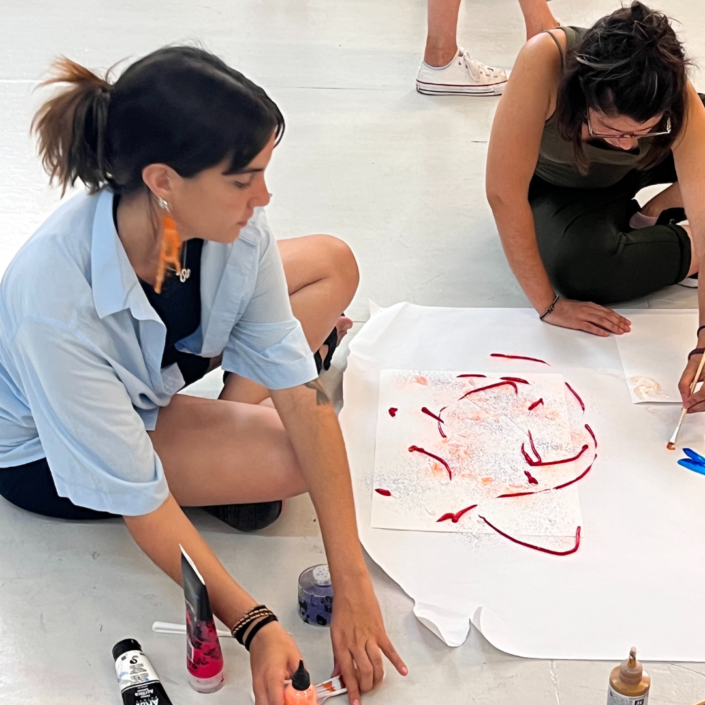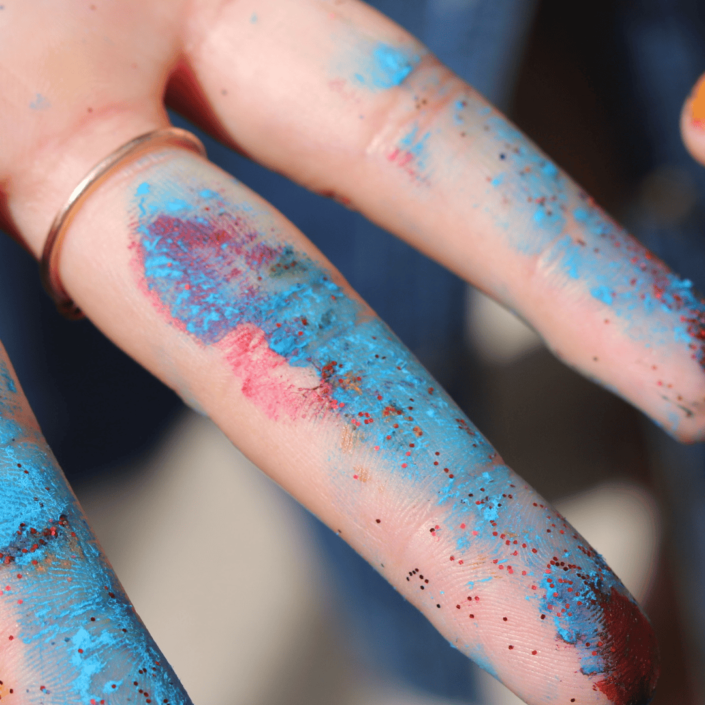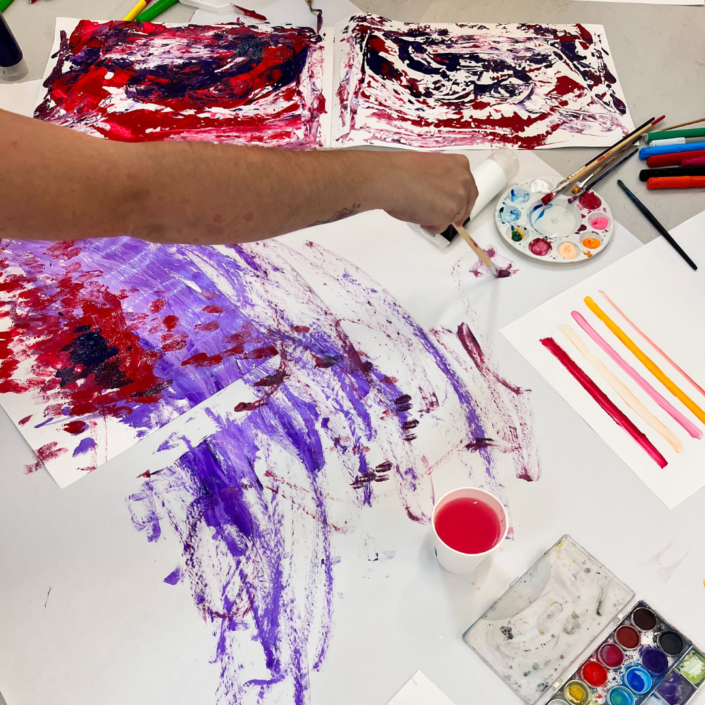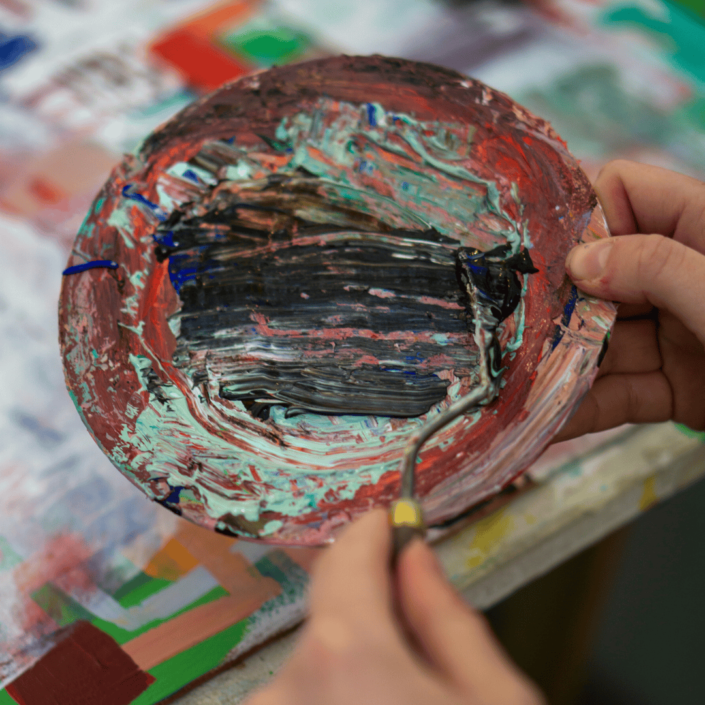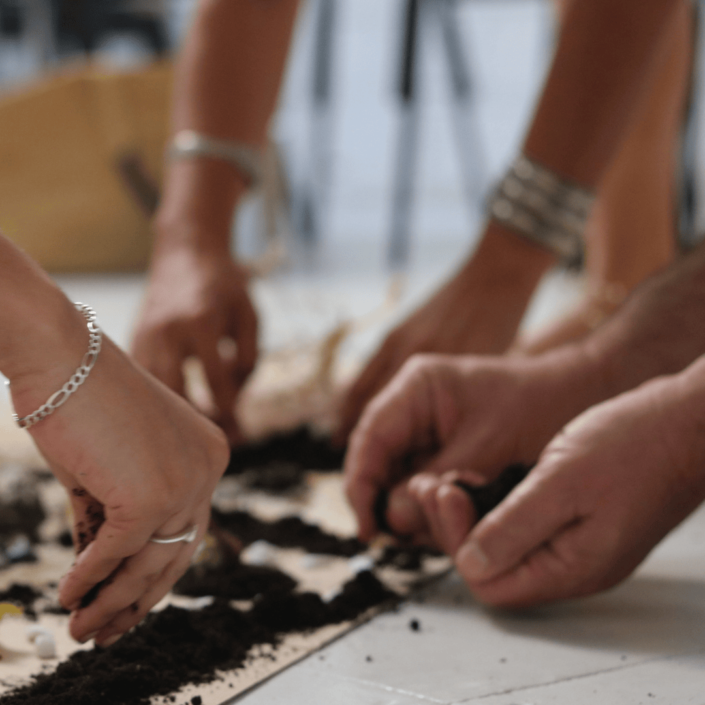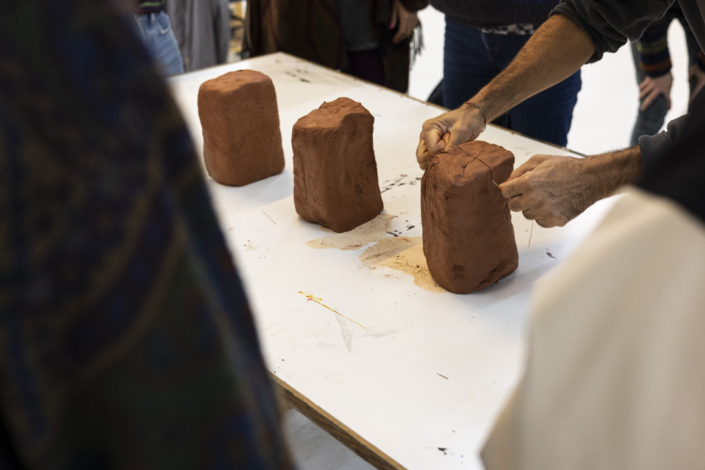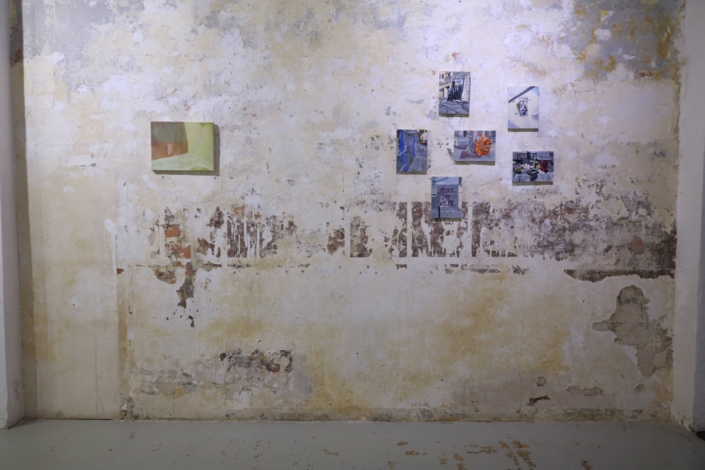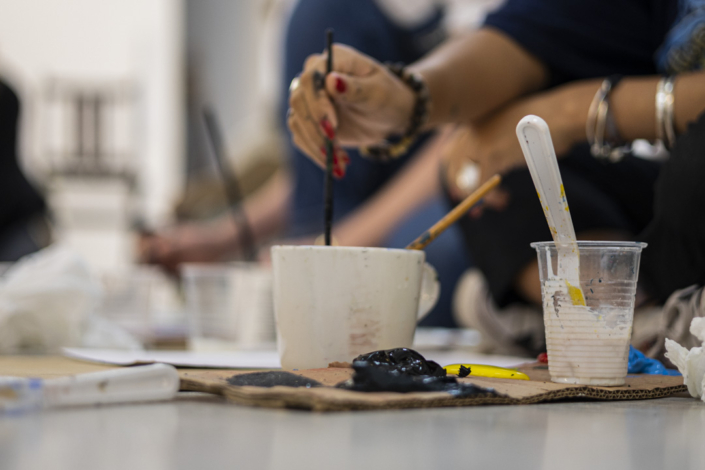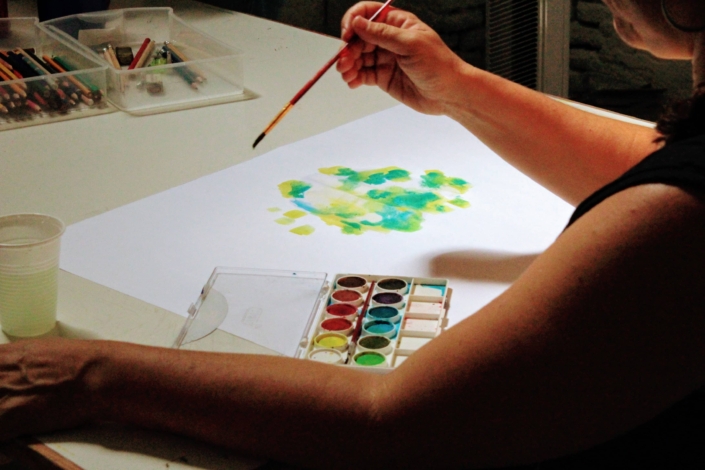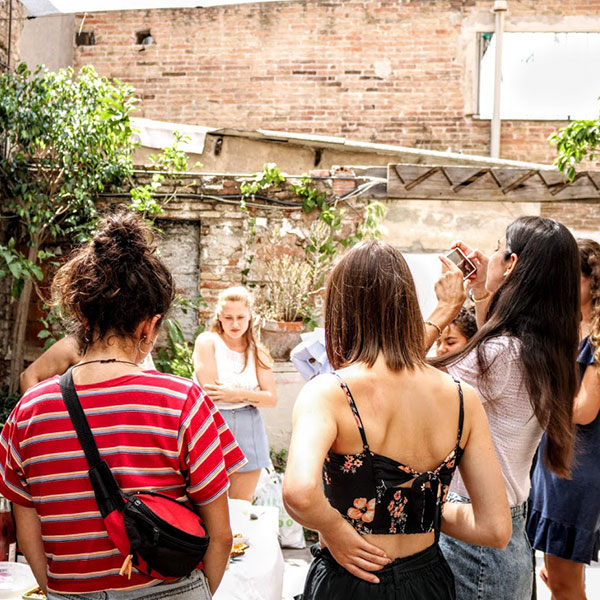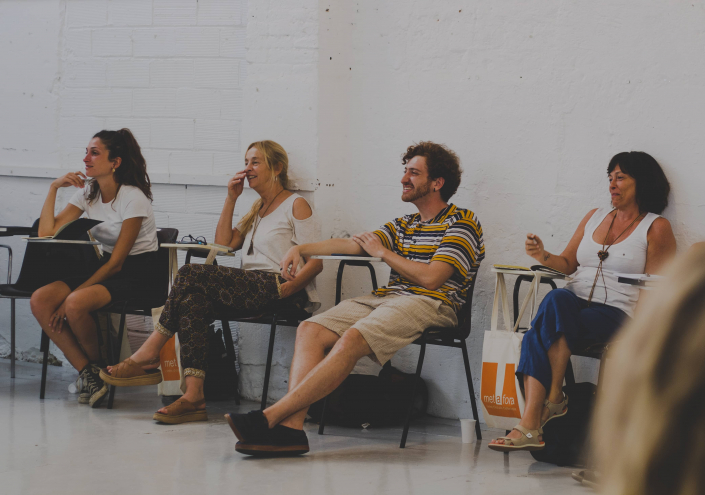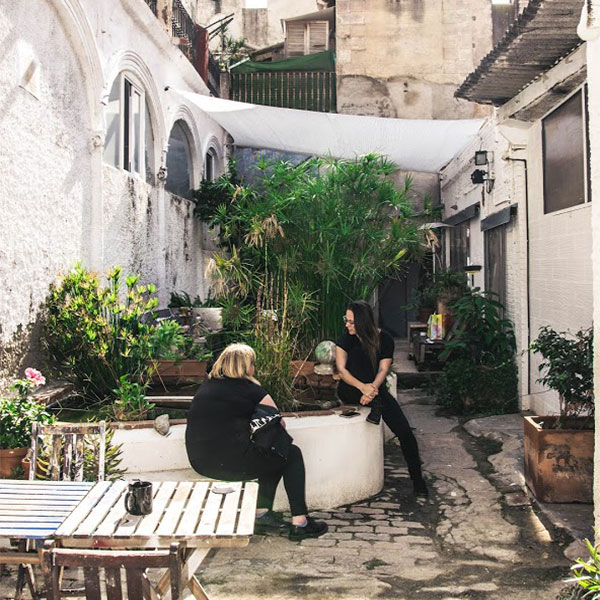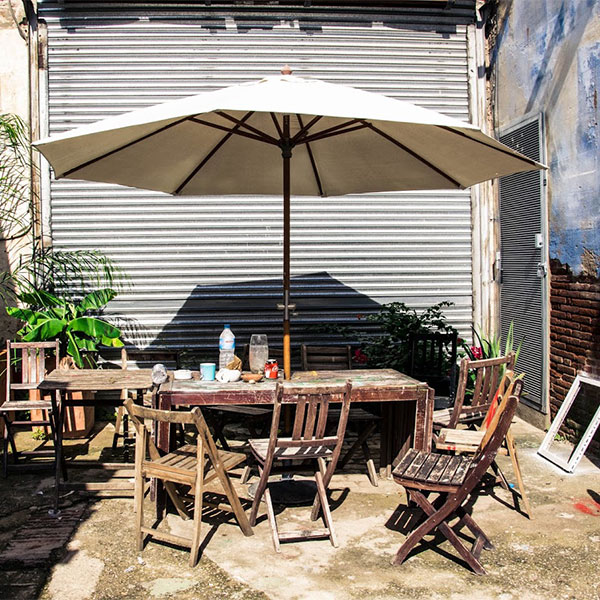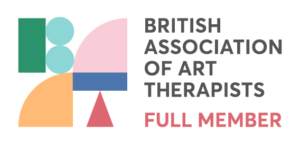MASTER’S IN ART THERAPY
Metàfora is a pioneer in the training of art therapists. In 1999, we launched the first Master’s in Art Therapy in Spanish in collaboration with the University of Barcelona. Since then, Metàfora’s Art Therapy training has become an international benchmark, with over 600 students from around the world graduated to date.
The Master’s qualifies to work as an art therapist. The Master’s, along with the Postgraduate Diploma are accredited by ATE (Spanish Professional Association of Art Therapists) and by FEAPA (Spanish Federation of Art Therapy Associations) in Spain. It follows the recommendations of professional art therapy associations in countries where this profession is officially regulated, such as the American Art Therapy Association (AATA), the Canadian Art Therapy Association (ACAT), the British Association of Art Therapists (BAAT). Metàfora is a member of the EFAT (European Federation of Art Therapy).
The art therapy training at Metàfora (Postgraduate + Master’s) amounts to a total of 120 ECTS credits (equivalent to 60 American credits aprox), of which the Master’s contributes 90 ECTS credits. From those, 60 ECTS are allocated to theoretical and experiential content, while 30 ECTS are dedicated exclusively to the completion of an internship (750 hours of clinical practice, of which 160 hours correspond to supervision).
WHAT WILL YOU LEARN?
- How to conduct individual and group art therapy sessions with different groups (children, mental health, the elderly, hospitals, schools…)
- About the tools of the discipline of art therapy, used all over the world
- Psychodynamic psychopathology
- Analytic group theory
- Use of mentalization in art therapy
Requirements:
- Be over 23 years of age
- Have a Postgraduate Diploma in Art Therapy
- Have a university degree
- Carry out a minimum of 84 hours of personal didactic psychotherapy during the two years of training (the psychotherapists chosen for didactic therapy must meet minimum training and professionalism requirements that are compatible with the training provided in the master).
| LEVEL: Master’s | DATES: October, 2025 – July, 2027 |
| FORMAT: Online | DURATION: 2 years (part-time) |
| CREDITS: 90 ECTS. The credits are counted in ECTS (European Credit Transfer and Accumulation System) to facilitate convalidation by other institutions. Metàfora is an independent institution, without university accreditation. | LANGUAGE: English |
| SCHEDULE: Every Friday (from 4pm to 8.15pm) and one weekend (Saturday & Sunday) per month (from 4pm to 8.45pm) | CERTIFICATE: Course accredited by the professional associations ATe and FEAPA |
| FEE: 6.385€ (total for the 2 years) | LOCATION: Online |
| SPOTS: 28 | PROGRAM: Check here |
The Master in Art Therapy has a duration of two academic years (part-time) and runs from October to July. Students must also complete around eight hours a week at their clinical internship. It is essential that the student remains in the same country of residence during the clinical internship.
Certain classes require a series of materials such as paper, crayons, pencils, paints, clay, modeling clay, fabrics, old magazines, bits and pieces of clothing, glue and anything that can be used as a sort of art material.
NOTES:
The subjects indicated in the schedule below are illustrative, the final programming is provided to the students at the beginning of the course.
Likewise, we inform that in Europe, two time changes occur each year. On the last Sunday of March, the clocks go forward one hour (2am becomes 3am). On the last Sunday of October, the clocks go back one hour (3am becomes 2pm).
CALENDAR
| COURSE CALENDAR | 2025-2026 ACADEMIC YEAR |
|---|---|
| OCTOBER | Friday 10 Friday 17 Friday 24 – Saturday 25 – Sunday 26 Friday 31 |
| NOVEMBER | Friday 7 Friday 14 Friday 21 – Saturday 22 – Sunday 23 Friday 28 |
| DECEMBER | Friday 5 Friday 12 Friday 19 – Saturday 20 – Sunday 21 |
| JANUARY | Friday 9 Friday 16 Friday 23 – Saturday 24 – Sunday 25 Friday 30 Backup day: Saturday 10 |
| FEBRUARY | Friday 6 Friday 13 Friday 20 – Saturday 21 – Sunday 22 Friday 27 |
| MARCH | Friday 6 Friday 13 Friday 20 – Saturday 21 – Sunday 22 Friday 27 |
| APRIL | Friday 10 Friday 17 – Saturday 18 – Sunday 19 Friday 24 |
| MAY | Friday 8 Friday 15 – Saturday 16 – Sunday 17 Friday 22 Friday 29 |
| JUNE | Friday 5 Friday 12 Friday 19 – Saturday 20 – Sunday 21 Friday 26 Backup day: Saturday 6 Master’s presentations: Saturday 27 – Sunday 28 |
TYPICAL MONTH
- FRIDAY
- 4 pm-5’30 pm
Theory of Art Therapy - 5’30 pm-5’45 pm
Break - 5’45 pm-8’45 pm
Supervision
- FRIDAY
- 4 pm-5’30 pm
Psychopathology - 5’30 pm-5’45 pm
Break - 5’45 pm-8’45 pm
Supervision
- FRIDAY
- 4 pm-5’30 pm
Theory of Psychotherapy - 5’30 pm-5’45 pm
Break - 5’45 pm-8’45 pm
Supervision
- SATURDAY
- 4 pm-5’30 pm
Methodology - 5’30 pm-5’45 pm
Break - 5’45 pm-6’45 pm
Case Presentation - 6’45 pm-7’00 pm
Break - 7’00 pm-9 pm
Art Therapy Applications Workshops
- SUNDAY
- 4 pm-5’30 pm
Strategies of Contemporary Art - 5’30 pm-5’45 pm
Break - 5’45 pm-7’15 pm
Experiential Group of Art Therapy - 7’15 pm-7’30 pm
Break - 7’30 pm-9 pm
Observation and Expression Techniques
OBJECTIVES
The Master in Art Therapy aims to prepare art therapists to be able to practice the profession inside and outside of Spain. For this reason, the essence of the course lies in clinical practices and supervision sessions. Students will acquire diverse conceptual tools, utilizing them in art therapy projects in institutions in both the public and private health networks, education centers and social assistance centers. In total, the Master’s students carry out 600 hours of clinical practice in addition to 160 hours of supervision.
In the Master’s, practical and theoretical knowledge acquired during the postgraduate (Advanced Diploma in Art Therapy) training as well as in the path of self-knowledge through the artistic processes, is reinforced and consolidated.
Throughout the program, students specialize in one area of therapeutic work while acquiring the necessary knowledge to work in other specific areas. These areas range from art therapy in mental health contexts and special education, to childhood, adolescence, and the elderly, as well as in the prison population, etc.
MODULE 1: ART THERAPY (34 ECTS)
ART THERAPY TRAINING GROUPS (27 hours)
The objective of experiential group art therapy is to explore the dynamics of a group in which images and art objects are produced. Students remain in the same small group throughout the two years of the Master’s program.
The session is divided divided into two parts: first, the students create, then, they generate a dialogue around these creations. Guided by a facilitator, the participants discover, little by little, through the experience of creating, some of the situations that give name to the different concepts that form the theory of art therapy. The role of the leader of the group is to help the members be the ones who explore and reveal the dynamics that occur within the interactions of the group.
OBSERVATION AND EXPRESSION TECHNIQUES (27 hours)
This is an extension of the experiential art therapy groups, with the objective of approaching psychotherapeutic work through observation, reflection and communication. The composition of the groups and their leaders are the same as in experiential art therapy groups. Students meet in this group for a monthly session.
The objective of this session is to acquire skills when observing situations or artistic processes, reflect on what is observed, whether the object of observation is oneself, the other, or a group situation, and explore creative ways to communicate our experience to others.
THEORY OF ART THERAPY (27 hours)
This is an introduction to the prominent authors and ways of working that characterize our profession. The theory of art therapy is explored through its history, theoretical framework and other aspects that shape the discipline with examples of practical applications and intervention modalities, with special emphasis on the Relational model, Mentalization and recent implementation of art therapy.
The objective is not only to discover the theoretical definition of the contents, but also to promote the capacity for reflection and emphasize the empowerment of bibliographic reading, two fundamental aspects for the development of the profession. At the same time, we will delve into the various aspects that make up this discipline and its variety of applications and possibilities within the proposed theoretical framework.
Contents:
- The internship; observation periods, assessments and first interviews, institutions and systems theory, interruptions and endings, records, notes, response works.
- Techniques and levels of intervention in art therapy
- Art therapy and Mentalization
- Therapist functions
- Art therapy and Families
- Online Art Therapy
- Art therapy groups
- Art therapy and Trauma
- Art therapy and Grief
METHODOLOGY (19,5 hours)
Art therapy is a young profession that still needs a body of research to support it. Much of the work of art therapists is to publicize their findings and therefore contribute to the development of the profession. This course introduces students to the fundamentals of research and teaches them how to evaluate clinical work and how to write about it.
Contents:
- bibliographic search tools
- formalities of writing and the art of writing (suggestions of the APA standards)
- ethical considerations
- critical and reflective thinking
- research methodologies in art therapy
- theory and practice in art therapy
- art based research
- case study development
- evaluations and reports
- Final work of the master
ACADEMIC WORKS (125 hours)
Academic work is carried out over the two years of training. Those of the first year consist of a bibliographic review and the development of a clinical session, which will serve as the basis for the final master’s project or thesis in the second.
ART THERAPY APPLICATION WORKSHOPS (10 hours)
Just like case presentations, workshops are an opportunity to learn about the different areas where art therapy is applied, expand resources, and experiment with different artistic proposals.
The invited art therapist provides a theoretical introduction about a specific group and then invites the students to experiment and discuss the proposed creative dynamics.
CASE PRESENTATIONS (20 hours)
These sessions are dedicated to presenting clinical work carried out in different centers by Metáfora’s team of art therapy professionals, as well as invited art therapists. In these meetings, professionals present in detail the course of cases and treatments carried out in different groups.
PROFESSIONAL RESOURCES (12 hours)
This subject provides tools and knowledge necessary for developing as professional art therapists. It addresses fundamental topics for professional practice, such as ethical issues, clinical supervision, intersectionality, and the importance of ongoing training. The main objective is to understand and address the ethical, practical, and social challenges that art therapists face in their professional practice, thus promoting reflective and thoughtful practice.
READING GROUPS (9 hours)
In the reading group sessions, students complete bibliographic reviews and analyze and debate art therapy texts (books or articles) proposed for this subject. Group work on essential readings facilitates the understanding and integration of art therapy theory.
MODULE 2: ART (14 ECTS)
CONTEMPORARY ART STRATEGIES (27 hours)
At the beginning of the 20th century, the art scene experienced an unprecedented expansion through the so-called ‘avant-garde movements’. The laws that governed artistic practices up to now were dissolved in favor of a freedom that opened up perspectives and the range of possibilities. Contemporary art, heir to this revolution, continues to break schemes and enter unsuspected terrain that forces the expansion of aesthetic and intellectual horizons. In this theoretical course we will review some works of art to analyze the different strategies used in recent visual arts.
ARTISTIC PRACTICE (230 hours)
It is essential that students maintain a continuous artistic practice. A minimum weekly dedication is recommended for the development of personal creative processes, promoting the development of the identity of the art therapist and artist, as a form of self-care and as a research tool, taking into account that this practice does not include the monthly tasks of the TOE group, nor the proposals of the artistic workshops.
ART WORKSHOPS (16 hours)
This subject aims to continue bringing the student closer to contemporary art, addressing theoretical, technical, material, and creative process aspects. Throughout the course, various professionals from the current art scene conduct these theoretical-experiential workshops.
MODULE 3: PSYCHOLOGY (12 ECTS)
THEORY OF PSYCHOTHERAPY (27 hours)
In this module, a series of nine annual conferences present students with the theory and practice of relational psychoanalytic psychotherapy. This is one of the conceptual bases for which the art therapy taught in this course originates.
Contents:
- relational psychotherapy and the psychotherapist
- emotions and concepts that guide the psychotherapeutic process
- curiosity
- intimacy
- shame, resentment and hate
- true guilt and false guilt
- joys and sorrows
- transference and countertransference
- emotional preparation for the practice of psychotherapy
PSYCHOPATHOLOGY (27 hours)
This subject acts as a guide to distinguish the different psychopathologies to support students in their practices. During one year of the master’s degree, the course is devoted to the psychopathology of childhood and adolescence, and in the second year to the psychopathology of adulthood.
First year contents:
- introduction to relational psychopathology
- adult development and aging
- neurosis and psychosis
- depressive and manic disorders
- anxiety and obsessive disorders
- trauma-related and somatic symptom disorders
- eating and sexuality disorders
- schizophrenic, delusional and paranoid disorders
- personality disorders and addictions
- psychopathology of old age and mourning processes
Second year content:
- child psychopathology
- the child and their environment
- attachment theory and mentalization concept
- neurodevelopmental and motor disorders
- specific learning and communication disorders
- anxiety and depressive disorders
- trauma-related disorders and stressors
- disruptive and impulse control disorders
- obsessive-compulsive and eating disorders
THEORY OF GROUP ANALYSIS (18 hours)
Part of the art therapist’s work is done in user group sessions within larger groups or institutions. Possessing a theoretical knowledge about group behavior is essential to understanding the institutional dynamics as well as the user group.
Contents:
- advantages and disadvantages of making a group
- therapeutic factors of a group, the matrix
- starting a group, patient selection, group size
- the initiator and co-therapy
- internal and external factors
- institutions and their relationship with our therapy groups
- dynamic elements in group therapy
- our fears and doubts
- responsibilities, reality criteria and objectives
NEUROPSYCHOLOGY (13,5 hours)
These classes offer an introduction to the structure and main functions of our brain, its normal and pathological functioning, and its ability to change, create and interact. The objective of this subject is to introduce the student to the main neuroimaging techniques and the reading of scientific articles, so that they can understand mental processes and therapeutic processes.
Contents:
- the emotional brain
- neural plasticity, definition and basic principles
- Neuroimaging and the technical devices that allow it
- the anatomy and function of major neurological structures
- memory
- contributions about mental disorders
- The brain, psychotherapy and artistic processes
MODULE 4: PRACTICUM (30 ECTS)
SUPERVISION (156 hours)
Supervision of the practices is carried out in small groups that meet weekly to monitor the clinical work. The participation of the students in the development and analysis of cases allows for exploring the individual experiences from the multiple perspectives that the group device offers. Supervision includes the artistic work of the art therapist through the “artistic response” and the use of Role Play or staging of situations to broaden the exploration of clinical material.
For the blended format group, supervision is held in-person at Metáfora one Friday a month. For the group that takes the online training, all the sessions are online.
PLACEMENT PRACTICE (600 hours)
The most notable feature of the Master’s in Art Therapy lies in the clinical internships. Students undertake 600 hours spread over two years in healthcare or educational centers with which Metàfora establishes collaborative agreements. These hours include direct interaction with users, meeting and coordination hours with the collaborating institution, and hours dedicated to note-taking and preparation for supervision.
INDIVIDUAL TUTORIALS (1,5 hours)
Throughout the course, the tutors meet individually with their students to monitor their training process. The tutors, who at the same time are the supervisors of the practices, are responsible for the correction and evaluation of the academic work by their students.
FINAL PRESENTATIONS (18 hours)
CREDITS
The Master in Art Therapy is a two-year course (90 ECTS). The credits are counted in ECTS (European Credit Transfer and Accumulation System) to facilitate convalidation by other institutions. Throughout the course, it is a mandatory requirement to carry out clinical practices. Metàfora provides an extensive network of more than 200 internship institutions that cover a wide range of care and educational institutions. Metàfora is an independent institution, without university accreditation.
It is a university-level program accredited by both the ATe (Spanish Professional Association of Art Therapists) and the FEAPA (Spanish Federation of Art Therapy Associations). Likewise, Metàfora’s training itinerary follows the recommendations for training art therapist from the AATA (American Association of Art Therapists) and the BAAT (British Association of Art Therapy).
Upon completing their studies, students receive a diploma and a detailed study transcript that they can use to validate their studies abroad, considering the regulations of each country.
EVALUATION
At Metàfora we use an integral evaluation methodology to assess the progress of our students. This type of assessment combines qualitative and quantitative analysis.
The assessment or qualitative analysis is not quantifiable and refers to the nature and quality of learning, it takes into account the personal strengths and weaknesses of the student with a view to working as a future therapist. The assessment is continuous, it is carried out throughout the training: the student’s personal commitment to the course is assessed as well as her/his personal development, which implies her/his ability to generate trust in others, to create consistent emotional bonds and to sustain difficult emotions. The Master also values the skills acquired in clinical practice, such as the ability to create and sustain a therapeutic framework, the ability to integrate theory into practice and learning in supervision.
The academic or quantitative evaluation contemplates the percentage of attendance and assignments completed, as well as the evaluation of academic papers. It is carried out in two specific moments of the course.
The integral evaluation method consists of an average of the two aforementioned sections, sum of assessment and academic. It takes into account both personal skills and academic achievement and ultimately decides whether the student passes or fails the course.
The results of the integral evaluation can be PASS, FAIL and NOT PRESENTED.
The Master in Art Therapy has 28 places available. Payment for the master’s is divided into different concepts linked to the admission process, established on specific dates: Paying in installments entails the application of a surcharge. The amount of the installments is detailed below in the payment table.
SINGLE PAYMENT
Application fee: 250€*
Reservation fee: 540€**
Remaining fee: 5.595€***
*APPLICATION FEE
The deadline for payment of the application fee is June 1st (after the application form has been submitted or, in the case of not yet having completed the postgraduate course, after passing the admission interview). In the event that you have not been admitted, the fee will be returned.
**RESERVATION FEE
The pay period is from the 17th to the 28th of June.
***REMAINING FEE
The remaining fee must be paid at least 30 days before the start of the course.
3 INSTALLMENTS***
Application fee: 250€*
Reservation fee: 540€**
Initial Payment (09/2025): 2.890€
Installment 1 (10/2025): 994,92€
Installment 2 (01/2026): 994,92€
Installment 3 (04/2026): 994,92€
*APPLICATION FEE
The deadline for payment of the application fee is June, 1st (once the application form has been submitted or, in case of not having yet completed the postgraduate course, after passing the admission interview). In the event that you have not been admitted, the fee will be returned.
**RESERVATION FEE
The pay period is from the 17th to the 28th of June.
***3 INSTALLMENTS
Payment in 3 installments entails a surcharge of a 5% interest.
12 INSTALLMENTS***
Application fee: 250€*
Reservation fee: 540€**
Initial Payment (10/2025): 2.890€
Installment 1 (11/2025): 262,72€
Installment 2 (12/2025): 262,72€
Installment 3 (01/2026): 262,72€
Installment 4 (02/2026): 262,72€
Installment 5 (03/2026): 262,72€
Installment 6 (04/2026): 262,72€
Installment 7 (05/2026): 262,72€
Installment 8 (06/2026): 262,72€
Installment 9 (07/2026): 262,72€
Installment 10 (08/2026): 262,72€
Installment 11 (09/2026): 262,72€
Installment 12 (10/2026): 262,72€
*APPLICATION FEE
The deadline for payment of the application fee is June, 1st (once the application form has been submitted or, in case of not having yet completed the postgraduate course, after passing the admission interview). In the event that you have not been admitted, the fee will be returned.
**RESERVATION FEE
The pay period is from the 17th to the 28th of June.
***12 INSTALLMENTS
Payment in 3 installments entails a surcharge of a 8% interest.
PAYMENT CONDITIONS
Application fee:
When applying to some Metàfora courses, the application form is accompanied by an application fee. This fee is returned to the applicant in the case of non-admission.
If admitted, the application fee is deducted from the tuition fees of the course.
If the student wishes to cancel or postpone the application, this fee remains valid for a maximum of 12 months, counting from the beginning of the course in which the student originally enrolled (see conditions below).
Reservation fee:
When the student has been admitted to the course, it is necessary to pre-enroll by paying a reservation fee. Metàfora does not guarantee a place on the course without this payment.
The reservation fee will not be refunded under any circumstances.
For courses with an admission process, a letter of admission is required in order to pay the reservation fee. Upon admission, the student will receive an invoice with the amount and specified payment terms.
If the payment due date is not met, the student may lose their place and be placed on the waiting list.
For bank transfers, it is essential to send proof of payment to Metàfora within the deadline.
For courses without entrance requirements, the reservation is guaranteed at the moment of the registration payment.
Tuition payment:
For courses that require an admission process, the remaining tuition must be paid at least 30 days before the start of the course (45 days before for those courses in which the Award Scheme discount has been applied).
In the case of courses without entry requirements, the remaining fees must be paid 7 days in advance of the start of the course.
If the payment due date is not met, the student may lose their place and be placed on the waiting list.
For bank transfers it is essential to send proof of payment to Metàfora within the deadline.
Once the course has started, there is no possibility of returning any or part of the fees. If the student wishes to cancel or postpone their stay at Metàfora.
Payment of tuition in installments:
Some courses offer the possibility of paying the remaining tuition in installments with an increase of between 5% and 8% of the pending amount. The payment terms are established by Metàfora.
Defer the beginning of a course or change course:
If the student wishes to postpone course start or change to another course, the amount paid remains valid for a maximum of 12 months, subject to an additional fee (see below). The deferment period counts from the beginning of the course on which the student originally enrolled.
The fees will not be refunded under any circumstances.
During this period, the student may opt for other courses (subject to admission and free places). In the event that the fees for the new course do not coincide with the course chosen initially, the student will be requested to pay the difference. If the chosen course has a lower value than the one paid, the remaining amount will be saved for another Metàfora activity, for a maximum of 12 additional months.
To postpone the start of a course or change to another course, it is necessary to inform Metàfora by written notification at least 6 weeks before the beginning of the original course start.
A deferment letter carries an additional cost of 250€, to be added to the remaining fees.
Involuntary interruptions of studies:
In case of accident or illness during the course, the studies may be interrupted for a maximum period of 12 months. It is necessary to present a medical certificate.
During this time the acquired economic commitment remains valid without any surcharge.
Voluntary interruptions of studies:
Once the course has started, if the student wishes to cancel or postpone their stay at Metàfora, there is no possibility of returning any or part of the fees.
If a student decides to interrupt their studies voluntarily, they lose their place on the course and must still comply with the acquired financial commitment.
In no case will voluntary interruption of the course leave the student exempt from the financial commitments contracted.
If the student wishes to resume the studies in the future, they must restart the application and enrollment payment procedures again.
Payment Methods:
All payments can be made in cash, by credit / debit card (through Metàfora’s website, by phone or in person) or by bank transfer.
When making the payment by bank transfer, the full name of the applicant must be clearly indicated. Metàfora is not responsible for reservation of places for participants whose name and course is not correctly included in the transfers received. In case of doubt, please send proof by email.
All commissions related to international bank transfers are at the expense of the sender. Any erroneously applied commission will be claimed when the student arrives.
Late payments:
A supplement of 20€ will be applied for each week of late payment.
ADMISSION REQUIREMENTS
- Have a Postgraduate Diploma in Art Therapy
- Have a university degree
- Be over 23 years of age
- Carry out a minimum of 84 hours of personal didactic psychotherapy during the two years of training (the psychotherapists chosen for didactic therapy must meet minimum training and professionalism requirements that are compatible with the training provided in the master). find more information about the didactic psychotherapy here.

